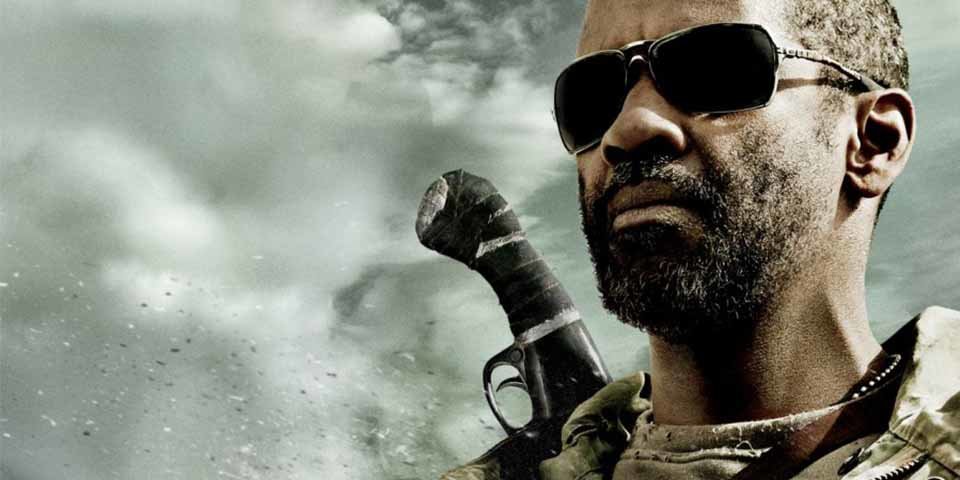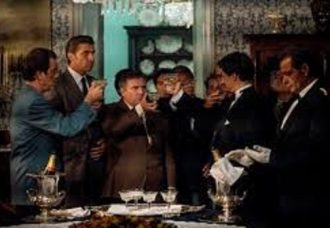It took Moses forty years to cross the desert. When The Book of Eli opens, Eli (Denzel Washington) has already spent thirty years walking towards his chosen destination, quite appropriately, the West. His is a character much like that of an angel from the older of the two Testaments; obedient, focused, and cold as the blade.
The world, after the catastrophe, is a wasteland. In this bleak atmosphere, effectively captured in steel grey-brown hues and silhouettes, a man in a gas mask hunts a down-to-the-bones animal. It is a time and a place when a pair of shoes from a rotting corpse is a blessing from heaven, and dirt gangs will kill with a grin for even a stack of tattered books.
Eli is a character much like that of an angel from the older of the two Testaments
Carnegie (Gary Oldman), the antagonist, and one of the few literate people in the region, craves for a particular book that is believed to immediately bestow immense power to its readers. The seemingly invincible Eli has the only surviving copy, reads from it every day, and will not allow anyone to even so much as touch it.
Washington is stoic. His masterly use of the sword makes for an invaluable textbook page for students of the art. Oldman sounds, in certain passages, ironically, like a preacher at the pulpit. And when he reads from his book, a brooding calmness settles upon his face. A couple of characters, portrayed as ignorant illiterates, innocently pose what can, essentially, be interpreted as Catholic Church questions.
This, then, is a post-apocalypse Christian satire inhabited by characters with conflicting characteristics: a cold-blooded emissary providing superhuman thrills; a naïve/vulnerable superwoman; and thugs of the lowest breed throwing their dialogues in the manner of Sunday catechism class kids in a neighborhood Bible drama.
The religious undertone runs strongly throughout this Hughes Brothers film. And the message is subconsciously directed at the new generation in one of the languages it understands best, that of bloody violence.
Emphasis is laid on the fall from grace of the human race and the need to rescue it. There are no orgies or worshiping of golden idols; instead, the people have altogether forgotten God, and have never heard of prayer. The major failing of the script, indeed, is this very absence of gods, for, as any expert on the subject will tell you, no insecure primitive society is complete without the belief in, and fear and adoration of, the unknown.
The Book of Eli — on IMDb








